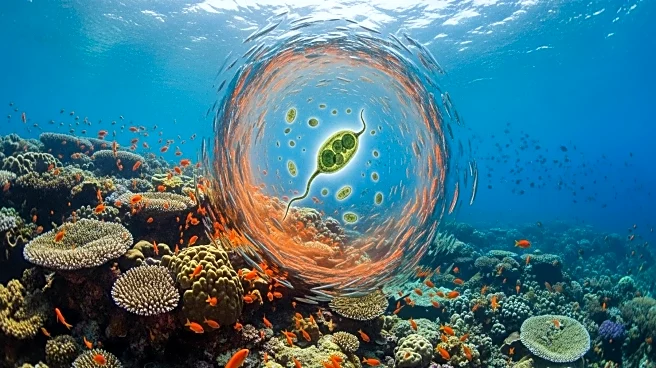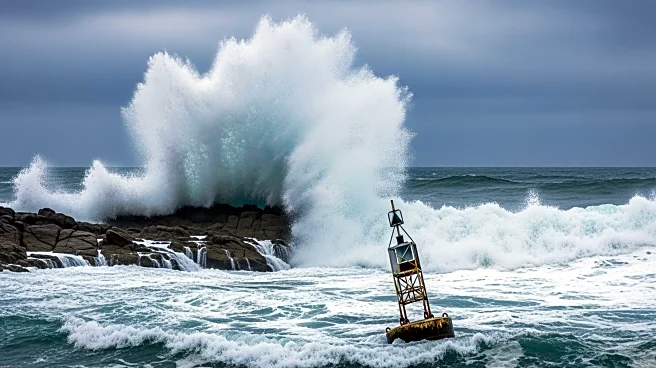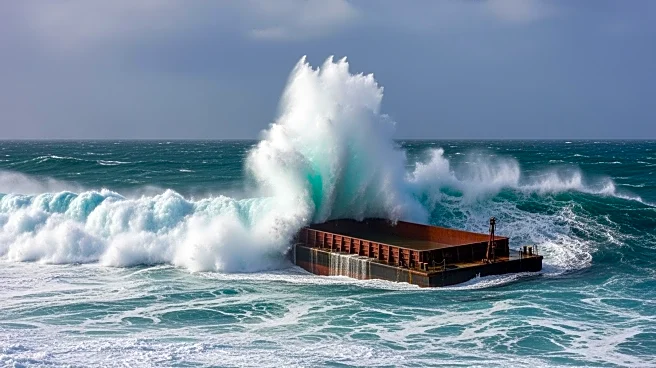What's Happening?
A new study has raised concerns about the vulnerability of Prochlorococcus, Earth's most abundant photosynthetic organism, to rising ocean temperatures. Prochlorococcus contributes nearly a third of the planet's oxygen production and forms a vital foundation to marine food webs. The study found that Prochlorococcus thrives in water temperatures between 19 and 28 degrees Celsius but struggles in temperatures above 30 degrees Celsius. As tropical and subtropical waters are forecast to exceed this upper limit within 75 years, the productivity of Prochlorococcus could significantly decline, impacting marine ecosystems and oxygen levels.
Why It's Important?
The potential decline of Prochlorococcus due to ocean warming could have profound effects on marine ecosystems and global oxygen production. As a key component of the marine food web, any reduction in Prochlorococcus productivity could lead to less carbon and food availability for marine organisms. This could disrupt the balance of marine ecosystems and affect biodiversity. Additionally, a decrease in oxygen production by Prochlorococcus could have broader implications for atmospheric oxygen levels and climate regulation.
What's Next?
Researchers are continuing to study the impact of rising ocean temperatures on Prochlorococcus and other marine organisms. Future research may focus on identifying heat-resistant strains of Prochlorococcus and exploring their potential resilience to warming waters. Efforts to mitigate ocean warming through climate change policies and conservation strategies will be crucial in preserving marine ecosystems and maintaining oxygen production. The study also suggests that Prochlorococcus may expand its geographic range toward the poles, indicating potential shifts in marine biodiversity.
Beyond the Headlines
The study highlights the interconnectedness of climate change and marine ecosystems, emphasizing the need for comprehensive environmental policies. The vulnerability of Prochlorococcus underscores the importance of addressing climate change to protect vital ecological processes. Additionally, the research raises questions about the adaptability of marine organisms to rapidly changing environments and the long-term implications for biodiversity and ecosystem services.










